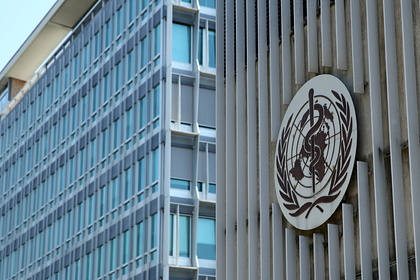WHO: the newest strain COVID-19 B.1.1.529, named with the letter “omicron”, may threaten countries 
World Organization experts Health (WHO) recognized the threat identified in South Africa, the newest strain COVID-19 B.1.1.529, which was assigned the Greek letter “omicron” (O). This is reported by Reuters.
According to WHO experts, a new type of coronavirus may threaten countries that are fighting its spread.
50 mutations have a new strain of coronavirus B.1.1.529
According to the organization, the B.1.1.529 virus, after a series of mutations, can affect the protein content in the body, and with such a change, current vaccines may not be as effective. The WHO also suggested that the omicron variant is spreading faster than its predecessors, as evidenced by the experience of South Africa. Therefore, the newer strain can affect more people in the world, including those who have recovered from other strains. The organization called on all countries to pay more attention to the study of the new variant of the coronavirus.
What is known about the omicron?
WHO has decided to name the new strain of coronavirus B.1.1.529 identified in South Africa by the Greek letter omicron (O). The decision was taken following an emergency meeting of the Technical Advisory Group on Virus Evolution. Also, experts from the organization have included the new strain in the group of options of concern.
Based on the evidence presented indicating a detrimental change in the epidemiology of COVID-19, the advisory group told WHO that this option should be designated as an option of concern
 WHO
WHO
Variants of the virus included in this group are characterized by an increased transmission rate, as well as an increase in virulence or a change in the clinical manifestations of the disease. Also, these options can reduce the effectiveness of existing diagnostics, vaccines and drugs for the treatment of coronavirus.
In addition, the organization has already assessed the ability of existing PCR tests to recognize the new strain. According to the organization, PCR tests recognize the omicron. The WHO stressed that this option has the potential to spread faster, but it can be detected by the loss of the S-gene during testing.
Earlier on November 26, WHO already expressed concern about the newest strain of the coronavirus SARS-CoV -2. At the same time, the head of the organization, Tedros Adanom Ghebreyesus, on his Twitter page called for the implementation of a vaccination program around the world as soon as possible.
A new variant of the COVID19 virus, the omicron, has a large number of mutations, some of which are worrisome. That is why we need to accelerate our efforts to implement the vaccination program as soon as possible and protect the most vulnerable (people) around the world
 Tedros Adanom Gebreyes, WHO head, omicron vaccines
Tedros Adanom Gebreyes, WHO head, omicron vaccines
The White House has already voiced statements about the vaccine against the new strain. According to Andy Slavitt, ex-adviser to the working group on combating COVID-19 at the White House, drugs against the omicron strain will be ready by the summer of 2022. It takes pharmaceutical companies like Pfizer and Moderna 100 days to develop vaccines against a new variant of the coronavirus, he said. Slavitt also noted that vaccine production, approval and distribution take time. According to the expert, it will take about two weeks to evaluate the effectiveness of mRNA-based vaccines.
If we start in early December, then new vaccines will be available to the whole world by summer
 Andy Slavittax Advisor to the White House COVID-19 Working Group WHO Director-General Tedros Adanom Ghebreyesus. He called the global distribution a “shocking imbalance”.
Andy Slavittax Advisor to the White House COVID-19 Working Group WHO Director-General Tedros Adanom Ghebreyesus. He called the global distribution a “shocking imbalance”.
More than 7.3 billion doses of the vaccine have been used worldwide, but about 70 percent of this amount went to just 10 countries
 Tedros Adanom Ghebreyesus Head of WHO
Tedros Adanom Ghebreyesus Head of WHO